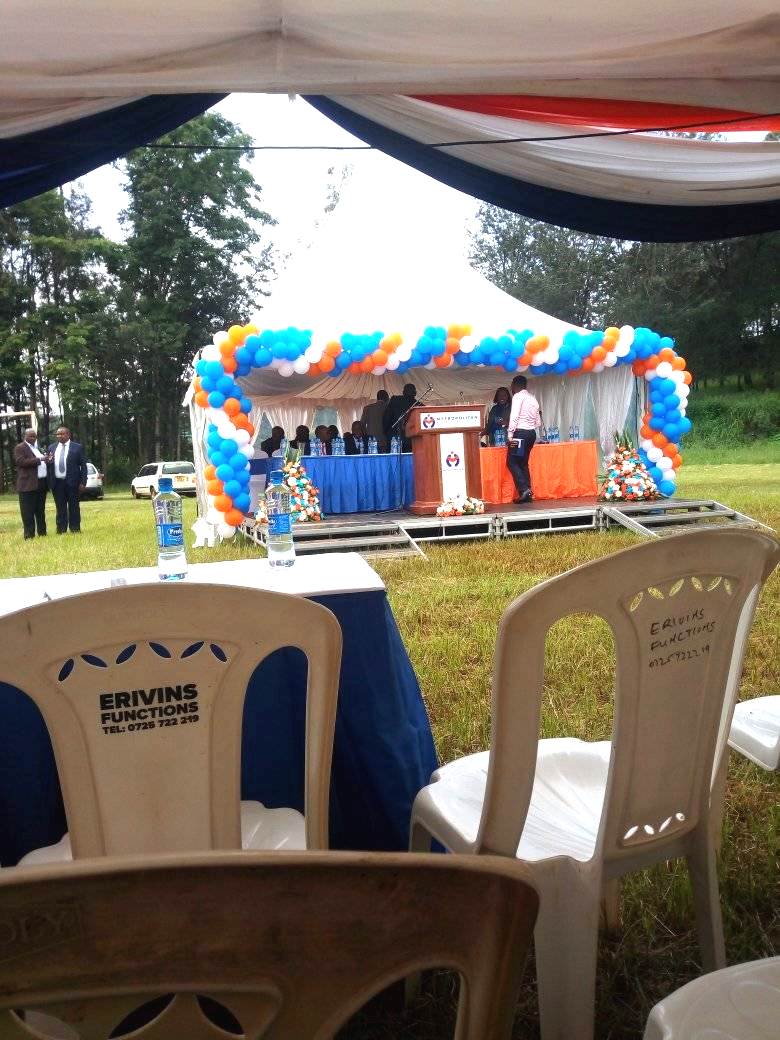Cabinet Secretary for Co-operatives and Micro, Small and Medium Enterprises (MSMEs) Development Simon Chelugui has appointed five new members to the Co-operative Tribunal to meet the quorum and help to deal with the backlog of cases before the tribunal.
In a Gazette Notice No. 2885 dated February 23, 2023, the CS appointed the new members for a period of three (3) years effective February 23, 2023.
“In exercise of powers conferred by section 77(1) (d) of the Co-operative Societies Act, the Cabinet Secretary for Co-operatives and Micro, Small and Medium Enterprises Development appoints Paul Otieno Aol, Michael Chesikaw, former Co-operative Commissioner Philip Gichuki, Fridah Lotuiya and Beatrice Sawe to be members of the Co-operative Tribunal, for a period of three (3) years, with effect from February 23, 2023,” reads the notice.
The Co-operative Tribunal is established under Section 77 of the Cooperative Societies Act No. 490 of the Laws of Kenya, and is composed of seven (7) members inclusive of a Chairperson and a Deputy Chairperson.
The tribunal has unlimited geographical and pecuniary jurisdiction in matters of co-operative disputes among members, past members and persons claiming through members, past members and deceased members; or between members, past members or deceased members, and the society, its committee or any officer of the society, or between the society and any other co-operative society.
In the determination and hearing of a case at the Tribunal, the Chairperson and two other members normally form a quorum.
The tribunal can hear cases of a claim by a co-operative society for any debt or demand due from a member or past member, or from the nominee or personal representative of a deceased member, irrespective of whether or not such debt or demand is admitted.
Others are a claim by a member, past member or the nominee or personal representative of a deceased member for any debt or demand due from a co-operative society, whether such debt or demand is admitted or not; anda claim by a Sacco against a refusal to grant or a revocation of license or any other due from the Authority.
The decision of the tribunal can appealed to the High Court within 30 days of the ruling.
The Tribunal has regional registries at law courts in Mombasa, Nakuru, Kakamega, Eldoret, Nyeri, Meru, Embu and Kisumu.
The Co-operative Tribunal was first established in 1997 and domiciled in the Ministry responsible for Co-operatives. It later opened doors to the public in 2002. However, in 2010 the Constitution of Kenya placed all tribunals under the Judiciary.
Tribunals are quasi-judicial bodies established by the Acts of Parliament to exercise judicial functions. They are clothed with legal powers to determine disputes between government agencies and citizens and among citizens.
Under the country’s court structure, tribunals are classified under the Subordinate Courts, and are considered a highly specialized, speedy and affordable forum of resolution of disputes.
In Kenya, Article 1(3) (c) of the Constitution recognizes the Judiciary and independent tribunals as State organs to which sovereign power is delegated by the people of Kenya.
The stalled Co-operative Bill, 2021 , which was introduced in the last parliament, had suggested the establishment of a Co-operative Court to be presided over by a Magistrate of the rank of a Senior Principal Magistrate and above or a person qualified to serve as a Magistrate of the rank of Senior Principal Magistrate and above.
According to the Bill, disputes to be referred to the Court include: any dispute concerning the business of a cooperative arising among members, past members and persons claiming through members, past members and deceased members; or between members, past members or deceased members, and the board of directors of the cooperative or any officer of the cooperative.
Others include claims by members, past members and persons claiming through members, past members and deceased members arising from breach or violation of contractual obligations; claims for any debt or refunds or deposits or any other due.
A claim by a cooperative against an employer for non-remitted deductions arising from an agreement between the cooperative and the employer on remittance of deductions; and a claim by a cooperative against a member, past members and persons claiming through members, past members and deceased members in respect to a breach or violation of contractual obligations.
Some of these disputes are currently being handled by the Co-operative Tribunal, the only organ mandated to settle disputes in the co-operative sector.
During a meeting held on January 27, 2023 at Sarova Whitesands Hotel in Mombasa between the Council of Governors (CoG), CS Chelugui and other key stakeholders in the co-operative sector to discuss collaborations between the two levels of government in strengthening the Co-operative sector as a vehicle to stimulate the economy, it was agreed that both the Ministry and CoG should collaborate on fast tracking the enactment of the draft Co-operative Bill to create a legal framework that will guide sector development and regulation.
By Roy Hezron


